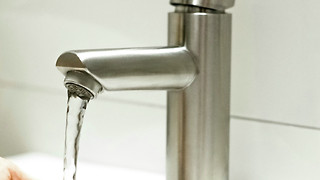Boaties are hitting the Cam already
Varsity attempts to decodify the infinite mysteries of the boatie lifestyle

There is no doubt about it, of all the sports available here at Cambridge, rowing would win the claim to a dictionary of its own. Every virgin boatie should be supplied with a fully comprehensive English-Boatie dictionary in order to understand the new language being spouted by that six-foot tall, probably six-foot-wide giant who accosted you at the freshers’ fair full of promises of cut-price ‘lycra’, exotic ‘training camps’, flexible ‘outings’, and state-of-the-art ‘ergs’ (rowing-machines) and ‘shells’ (boats). Before you know it, rowing is beginning to sound more like some kind of twisted, military fetish than an enjoyable and apparently legendary pastime of the thousands of students who pass through Cambridge every decade.
Suddenly, rowing is no longer just a sport, but a full-blown examination in some form of mechanical engineering. If you manage to stick it out until mid-term, you will find that terms such as ‘sit-backs’, ‘knees down’, ‘checking’ and perhaps worst of all ‘high-rate pieces’ or ‘rate pyramids’ will be shouted at you by coxes and coaches alike. These all represent examples of ‘calls’, used in order to improve your stroke and the speed of the boat. You will be expected to make changes to each component part of the stroke; from the drive phase, to the ‘finish’ with arms and backs, and the ‘catch’ when you place the blade in the water. Everyone breathes a sigh of relief when they hear the word ‘recovery’, but be warned – this only functions as yet another mode of criticism about your stroke, not as permission to take a break.
Boaties are a unique breed of mankind, in possession of their own language, and totally misunderstood by all non-boaties. They choose, yes choose, to get up before the sun rises to get onto a freezing cold river in the driving rain in mid-Novemeber, they shamelessly opt to jump into the communal showers afterwards giggling like schoolgirls at the resulting dubious banter, and they strive to crash their prized boats into the boats of other Colleges in a tame-sounding round of ‘bumps’ – the major inter-collegiate rowing competition which rounds off exam term and in 2010 saw both Trinity and Pembroke retaining the ‘head of the river’ (top-boat position). However, even lower boats can gain the enviable accolade of ‘blades’, marking triumphs in the equally fierce and exciting lower divisions. Homerton M1 and Christ’s W2 both won their blades back in June, but it was the daily battle between Emmanuel M3 and Caius M3 which astounded spectators, leaving the former six places up, and the latter, an incredible nine places up the charts, confidently securing their place in boathouse history books.
Needless to say, however, boating is a magnificent sport, and impossible to explain fully here. Tens, if not hundreds, of thousands of students have rowed for Cambridge over the course of the last 200 years and athletes from across the world vie desperately to gain a chance to row for this prestigious University in one of the most famous sporting events of all time, the Oxford-Cambridge Boat Race, once an amateur clash between rival universities, and now a national institution. Boatie life is certainly both infectious and addictive, a mystery, and a sport like no other.
 News / Cambridge scholarship recipient trapped in Gaza21 July 2025
News / Cambridge scholarship recipient trapped in Gaza21 July 2025 News / Chancellorship candidates express concern about conduct of election 19 July 2025
News / Chancellorship candidates express concern about conduct of election 19 July 2025 News / News in Brief: Chaucer, coffee-houses, and challenging degrees20 July 2025
News / News in Brief: Chaucer, coffee-houses, and challenging degrees20 July 2025 News / Write for Varsity this Michaelmas13 July 2025
News / Write for Varsity this Michaelmas13 July 2025 News / Trinity exam burglar jailed for 11 months18 July 2025
News / Trinity exam burglar jailed for 11 months18 July 2025







